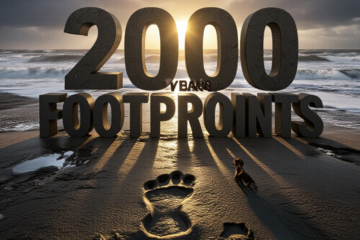A 17-year-old boy in Scotland received a 10-year sentence for planning a terrorist attack on a mosque in Greenock, Inverclyde. Authorities arrested him in January 2025 outside the Inverclyde Muslim Centre, where he intended to set the building on fire and kill worshippers inside.
Details of the Planned Attack
The teenager, whose name remains protected due to his age, befriended the mosque’s imam to gain inside access. He joined the mosque’s WhatsApp group in December 2024, claiming he sought guidance on faith matters.
Prosecutors revealed he mapped the building’s layout on his phone during visits. He carried a camouflage rucksack with a Glock-type air pistol, ammunition, ball bearings, gas cartridges, and aerosol cans when police stopped him at the entrance.
Court documents showed he boasted about his plans on Telegram, a social media platform. He even requested the attack be livestreamed, aiming for mass casualties.
The judge described the plot as a diabolical act of extreme violence. Sentencing occurred on August 21, 2025, at the High Court in Glasgow, after the boy pleaded guilty to terrorism charges.

Radicalization and Influences
Online radicalization played a key role in the teenager’s actions. Reports indicate he immersed himself in far-right content starting at age 13, idolizing figures like Adolf Hitler, Benito Mussolini, and Anders Breivik, the Norwegian mass killer.
Investigators found he consumed neo-Nazi materials and expressed hatred toward Muslims. This case highlights growing concerns about youth exposure to extremist ideologies on social media.
Community leaders noted the boy had no prior criminal record but showed signs of deep prejudice. His plan targeted a place of worship in his local area, shocking residents.
Experts point to a rise in far-right incidents across the UK. Recent data from 2025 shows a 15 percent increase in hate crimes linked to online radicalization, according to police reports.
The teenager also had a history of violent thoughts. Sources reveal he previously considered attacking a school before shifting focus to the mosque.
Court Proceedings and Sentencing
During the trial, the prosecution outlined how the boy won the imam’s trust through multiple visits. He filmed himself inside the mosque, superimposing images of weapons in videos.
The judge, Lord Arthurson, emphasized the plot’s severity in his remarks. He noted the teenager’s intent to cause multiple deaths and the fact that only arrest prevented disaster.
The sentence includes 10 years in custody plus eight years of supervision upon release. This aims to rehabilitate while protecting the public.
Legal analysts say this reflects Scotland’s firm stance on terrorism. Similar cases in recent years have led to lengthy sentences for planned attacks.
- Key items found in the rucksack: Air pistol, ammunition, ball bearings, gas cartridges, aerosol cans.
- Timeline: Radicalized since 2018, plot started December 2024, arrested January 2025, sentenced August 2025.
- Influences: Hitler, Mussolini, Breivik.
Community Impact and Reactions
The Inverclyde Muslim Centre community expressed shock but also forgiveness. Chairman Mohammed Akhtar praised police for quick action and called for understanding among neighbors.
Local leaders highlighted the need for better online safeguards. They urged parents to monitor children’s internet use amid rising extremism.
This incident echoes other UK events, like the 2024 far-right riots in England, which fueled anti-Muslim sentiment. In Scotland, hate crime reports surged by 12 percent in early 2025.
Residents in Greenock held a vigil to promote unity. The mosque continues operations, strengthening security measures.
| Aspect | Details |
|---|---|
| Location | Greenock, Inverclyde, Scotland |
| Arrest Date | January 2025 |
| Sentence | 10 years custody + 8 years supervision |
| Motivations | Neo-Nazi beliefs, racial hatred |
| Community Response | Calls for unity and forgiveness |
Broader Implications for Society
Cases like this underscore the dangers of unchecked online hate. Authorities are pushing for stricter regulations on platforms that host extremist content.
Education programs in schools now include modules on recognizing radicalization signs. This aims to prevent similar plots among young people.
The UK government reported over 1,500 terrorism-related arrests in 2024 and 2025, with a focus on far-right groups. Experts predict more preventive measures in coming years.
This story serves as a reminder of vulnerability in diverse communities. It calls for vigilance and dialogue to combat prejudice.
What do you think about this case? Share your thoughts in the comments below and spread the word to raise awareness about online radicalization.


















